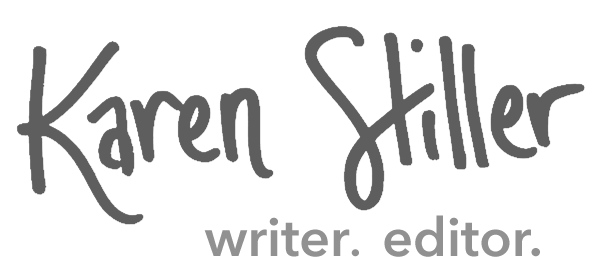Lots has been written about a writer’s “voice” — that distinct style/tone/temp/mood of writing that is yours alone. But there is another writer voice that needs to be developed. That is your own strong, professional voice that is your salesperson, accountant, marketer, boundary-setter, price-setter and cheque-claimer.
I’ve been thinking about this recently in light of Geri Scazzero’s excellent book The Emotionally Healthy Woman: Eight Things you Have to Quit to Change Your Life. Scazzero urges women to use their “voice of declaration” to say what you mean and mean what you say. “State your preferences daily,” she writes. She also uses the image of a “yes/no” medallion strung around your neck that is your answer to people’s pesky questions. You just have to say “yes” or “no,” not engage in a debate worthy of the Supreme Court of Canada. Both of these tips are helpful in personal life, but also professional life as a freelancer.
Here are a few areas I’ve learned to use my other writer voice:
1. Setting a fair price for work well done. This is a hard one. As freelancers we often feel we have to take what is offered or lose the work. Sometimes, that is actually the case! At some point though, I deliberately stopped writing for the lowest price point out there, unless it was really worth the effort on my part for some other reason (exposure, connection, or the story just had to be told). It’s also hard to know what is a fair price when freelancers find it tough to discuss fees amongst themselves. I have a few friends who are fellow writers that I will bounce fees/bids/offers off to see what they think. Nurture those relationships, they will help you voice your fiscal worth! There are also websites out there that offer some guidance. Recently, I rewrote a website for someone at a reduced fee, but then asked them to promote a new venture I was involved in with their future clients.
2. Asking for payment in a reasonable time frame. I detest badgering people for pay, but I’ll do it when I have to.
3. Editorial push-back. Almost always, I think an editor makes my piece better with their fine work. Sometimes, though, they don’t, and I have learned to use my other writer voice to reclaim material that was cut, or just engage in a respectful conversation for the good of the piece. We usually reach a healthy compromise and the reader is better off for it.
Freelancing is a tough business. A clear, strong, non-hysterical “other writer voice” will help.

